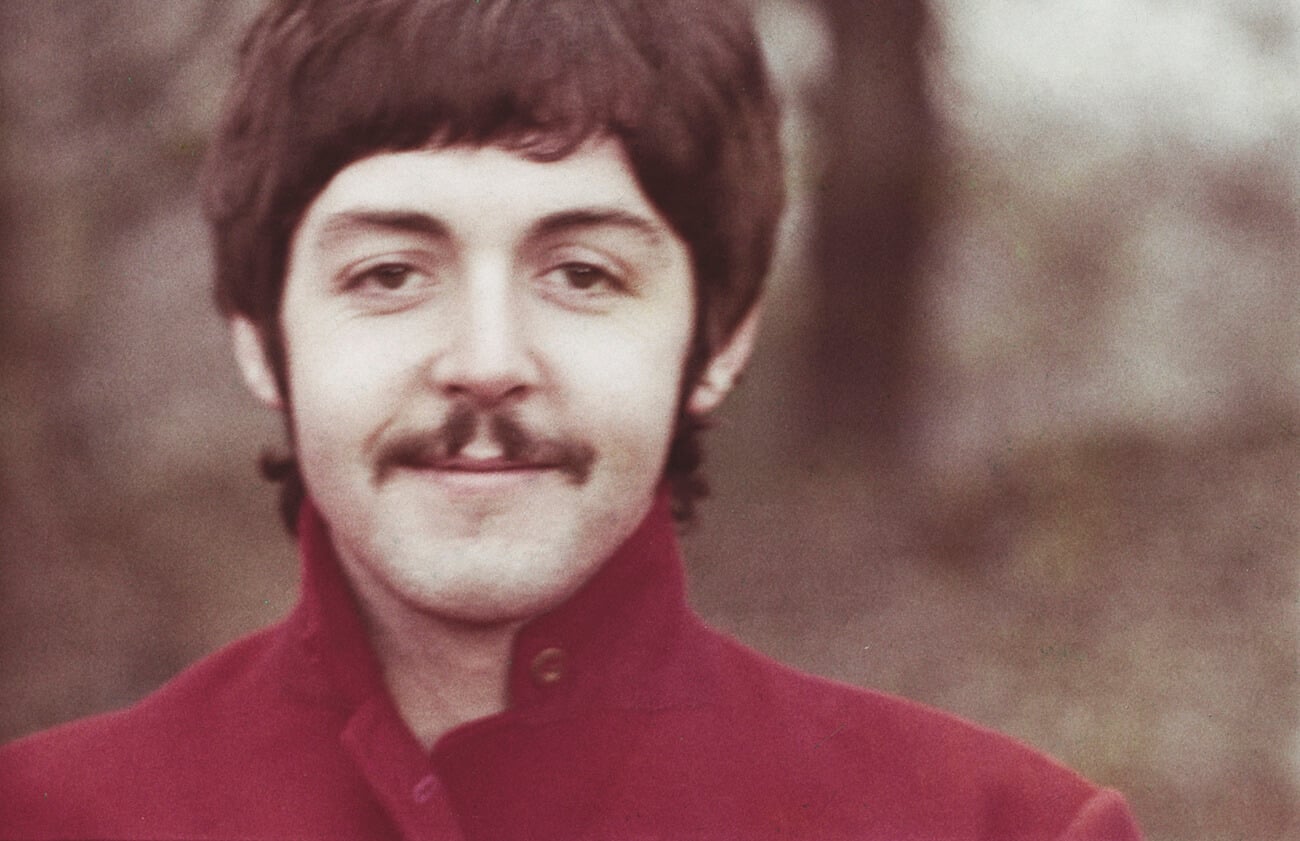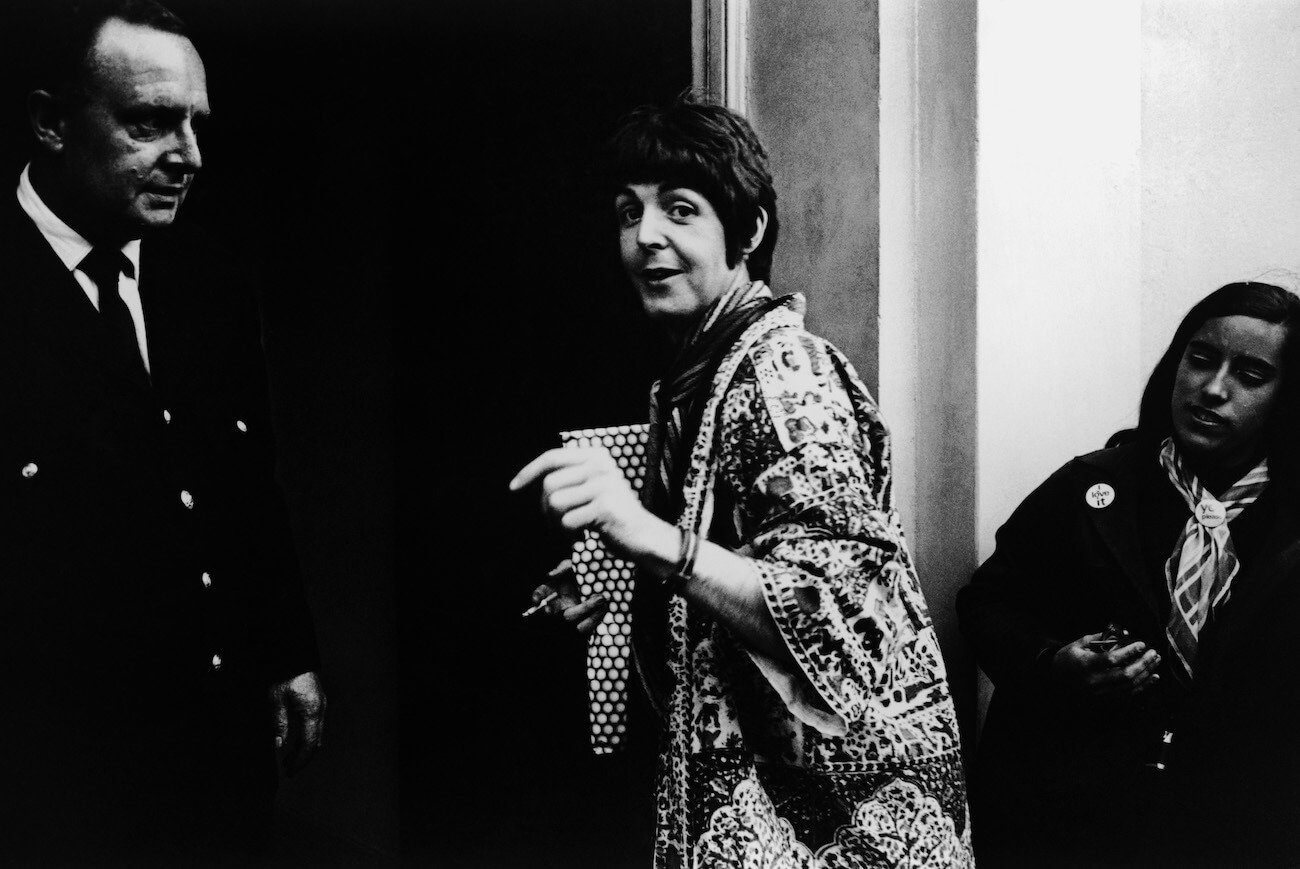
Paul McCartney Said He Couldn’t Quite Suppress His ‘Weakness for Naughtiness’ at the End of ‘Lovely Rita’
Paul McCartney said he couldn’t quite suppress his “weakness for naughtiness” when he wrote the ending of The Beatles‘ “Lovely Rita.” There was always an erotic aspect behind Paul’s lyrics.

Paul McCartney said it was amusing that ‘Lovely Rita’ is about someone who loves a parking attendant
In his book The Lyrics: 1956 to the Present, Paul wrote that nobody liked parking attendants or meter maids, as they were known in the 1960s. So, Paul thought it would be amusing to write a song about someone in love with one.
Paul based The Beatles’ “Lovely Rita” on a particular meter maid he saw in Portland Place. He recalls her looking slightly military-looking. It’s terrible, but Paul thinks those meter maids were never good-looking. “You never heard anybody say, ‘God, that’s one stunning parking attendant,'” he wrote.
Paul saw “Rita” across the street from the Chinese embassy in Portland Place. She was filling out a ticket in her little book. “The cap, the bag across her shoulder. It’s sheer observation, like painting en plein air. I’ve said it before and I’ll say it again: the secret to successful songwriting is the ability to paint a picture,” Paul explained.
Paul said he couldn’t contain his naughtiness while writing the ending of ‘Lovely Rita’
The “Yesterday” singer said one of the complicated factors in the song’s picture is just how taken the speaker is with Rita. The speaker got the bill, but Rita paid it. Paul said it would’ve been ungentlemanly in the 1960s to allow the girl to pay the bill.
Then, there’s also the idea that the speaker seems “slightly miffed” that he and Rita end up on the sofa with a “sister or two.” The line suggests that the speaker wanted to be alone with Rita, not have her two sisters as third and fourth wheels.
Paul had fun with the idea in the line, “When it gets dark I tow your heart away.” However, in the end, Paul said he couldn’t quite suppress his weakness for naughtiness, especially in the phrase, “Give us a wink.”
A wink might conjure an idea like “a nod and a wink.” However, it’s also a euphemism, Paul will admit. He explained, “We always liked to put in things like ‘finger pie,’ which you’ll find in ‘Penny Lane.’ We knew people would get it.”
It also helped that the BBC wouldn’t ban a song like “Lovely Rita” because they couldn’t decipher what it meant when Paul sang, “Give us a wink and make me think of you.” It allowed The Beatles to write as many risqué lyrics as they wanted as long as they made them less-than-obvious.
It amuses Paul to think that the BBC, “that bastion of respectability,” was also in Portland Place, not too far from the Chinese embassy where Paul first saw Rita “in the flesh.”
The track wasn’t the only Beatles song that had eroticism lurking behind the lyrics
“Love Rita” wasn’t the only Beatles song that had eroticism lurking underneath. Speaking about the group’s earlier songs, Paul said there was an eroticism “behind it all.” Although, if he’d heard himself use that word when he was seventeen, there would have been a “guffaw.”
“But eroticism was very much a driving force behind everything I did,” he wrote. “It’s a very strong thing. And, you know, that was what lay behind a lot of these love songs. ‘I want to hold your hand,’ open brackets, [and probably do a lot more!].”
Without a certain amount of eroticism, The Beatles’ lyrics wouldn’t have been as enjoyable. They had to develop clever euphemisms so the BBC wouldn’t ban them, but it also made their song more creative.


